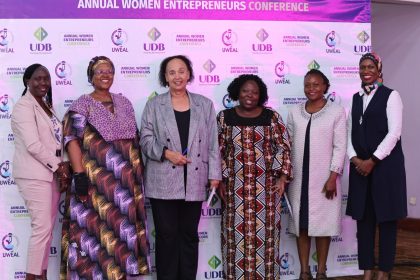Uganda’s proposed tax changes may dampen investor confidence
 Ssali suggests there is a likelihood that certain investment decisions will be reviewed and investors, may opt to maintain the current status quo without focusing on further expansion or divest their investments and look elsewhere in countries where tax regimes provide for better incentives.
Ssali suggests there is a likelihood that certain investment decisions will be reviewed and investors, may opt to maintain the current status quo without focusing on further expansion or divest their investments and look elsewhere in countries where tax regimes provide for better incentives.
There are number of proposed amendments across the various tax statutes, which may potentially affect the existing Income Tax Act, Value Added Tax Act, Stamp Duty Act and Excise Duty Act as we come to the close of fiscal year 2022/2023, writes Hamza Ssali.
These come at a time when the new tax bills/proposals for the next fiscal year 2023/2024 are tabled and debated in the Parliament. These proposals once passed by the Parliament and assented to by the President will effectively become part of tax law compendium come 1st July 2023.
Quite often investment decisions take into consideration several variables such as funding/financing options, tax regime and incentives available, labour laws, political, social and economic environment of a given location among others.
My focus hear is on the incentives available to taxpayers, specifically tax incentives with regards to capital allowances. A capital allowance is the amount of capital investment costs, or money directed towards a company’s long-term growth, a business can deduct each year from its revenue via allowable tax deductions.
Governments set out various tax incentives to attract investors and to define when businesses can deduct their capital investment costs from their revenues. The amount of investment costs a business can deduct in a year is called a capital allowance. This is a form of cost recovery, or the ability of businesses to recover (deduct) the costs of their investments.
Over the years, there has been a shift on application and utilization certain capital allowances, for instance repealing [utilization of]initial allowance in then gazetted five areas of Kampala, Wakiso, Mukono, Entebbe and Jinja and substituting this provision with restriction of its operation to areas outside 50 kilometres radius from Kampala. Another interesting amendment in recent years was the deferring [for one year] of wear and tear-call it tax depreciation for qualifying assets that enjoy initial allowance.
What is before the Parliament in so far as this capital allowance treatment is concerned are two proposals aimed at repealing initial allowance completely on plant and machinery as well as on industrial buildings, that is, a proposal to repeal 50% and 20% cost recovery in the first year of use on plant and equipment as well as industrial buildings(except approved commercial buildings as provided in the tax statute). An industrial building is defined in the Income Tax Act to mean any building which is wholly or partly used, or held ready for use, by a person in – manufacturing operations; research and development into improved or new methods of manufacture; mining operations; an approved hotel business; an approved hospital; or approved commercial buildings.
Like earlier stated, the 50% cost recovery is currently granted to taxpayers who invest in eligible plant and machinery in a radius of 50 kilometres from Kampala while the 20% cost recovery on industrial buildings is for eligible taxpayers irrespective of the location. This tax provision would inform investors where and what type of investment to make if they were to have accelerated cost recovery, thereby shortening the payback period to recoup investment. The essence of granting initial allowance on plant and equipment outside the 50 kilometres radius, islargely to encourage investments outside Kampala metropolitan area and its outskirts- in locations presumed to lack certain essential amenities and hence, the cost doing business is too expensive.
In case these tax proposals (repealing initial allowance on plant and equipment and industrial buildings) are passed into law, there is a likelihood that certain investment decisions will be reviewed and investors, may opt to maintain the current status quo without focusing on further expansion or divest their investments and look elsewhere in countries where tax regimes provide for better incentives. Although tax proposals should be understood to have a positive outlook of widening the tax base, enacting these proposals will likely deter economic growth, worsen current unemployment levels and generally the country’s attractiveness index may slump as preferred investors’ destination.
With current disruptions to the supply chain, such as surging inflation in developed economies, the Russia-Ukraine conflict and the apparent post covid-19 effects, economies are striving to remain resilient and continue to enhance investors’ attractiveness indices. The risk appetites vary from company to company but what is common in most of the investment decisions is to have a faster paced approach to cost recovery. These tax proposals, therefore, may discourage investment in capital intensive sectors such as Oil & Gas, mining and manufacturing.
Hamza M. Ssali is a Senior Manager, Tax at EY, Kampala

 Trading leads as main source of income for Ugandans
Trading leads as main source of income for Ugandans
 New leadership for bankers’ umbrella as total assets top $12 billion
New leadership for bankers’ umbrella as total assets top $12 billion
 Big fish in small pond Stanbic notches up $100m profit for 2023 topping previous figure by 15%
Big fish in small pond Stanbic notches up $100m profit for 2023 topping previous figure by 15%
 Inaugural event sets agenda for supporting women-owned businesses
Inaugural event sets agenda for supporting women-owned businesses
 Standard Bank Group reports $2 billion earnings up 27% from 2022
Standard Bank Group reports $2 billion earnings up 27% from 2022
 Stanbic Bank Uganda Chief Executive elevated to regional role in Nairobi
Stanbic Bank Uganda Chief Executive elevated to regional role in Nairobi
